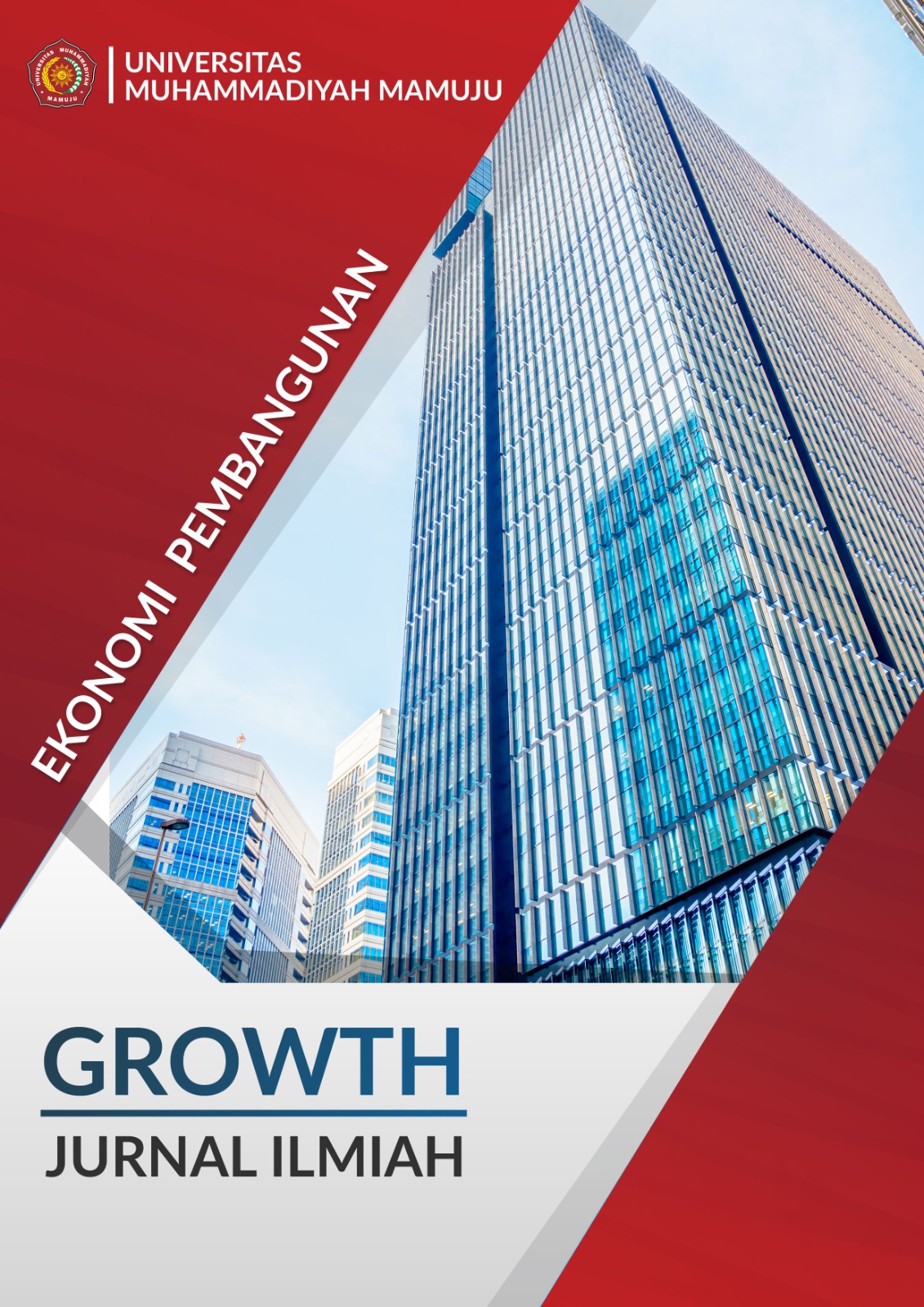PENERAPAN E-GOVERNMENT PADA DINAS KEPENDUDUKAN DAN CATATAN SIPIL KABUPATEN BONE (STUDI PADA APLIKASI SISTEM INFORMASI MANAJEMEN KEPENDUDUKAN)
Kata Kunci:
Implementation Elements, E-Government, BoneAbstrak
Implementing E-Government in the current modern era requires prioritizing information technology so that online public services can be more effective and efficient. To implement E-Government in the Bone Regency Population and Civil Registry Service in providing services to the community, you need to pay attention to the elements for implementing E-Government. This research aims to determine the application of E-Government in the Bone Regency Population and Civil Registry Service. using qualitative research methods with descriptive research type. Data collection techniques use observation, interviews and documentation. The data analysis process includes data reduction, data presentation and drawing conclusions. The results of this research show 3 elements in implementing E-Government in the Bone Regency Population and Civil Registration Service, namely: 1). The Support Element is the support and desire of the leadership of the Bone Regency Population and Civil Registry Agency in implementing E-Government and the existence of regulations that support implementing E-Government. 2). Capacity elements include the availability of financial resources originating from the Regional Revenue and Expenditure Budget, the availability of infrastructure resources that support implementing E-Government such as computers, wifi, print and others, and the availability of human resources who have the capacity to implement E-Government or online service to the community. And the 3rd). It is a value element which is a benefit felt by the Population and Civil Registry Service of Bone Regency as providing online services to the community which in implementing E-Government provides a large beneficial impact in terms of effective and efficient service innovation at this time in the Population Service agency. and the Civil Registry of Bone Regency, while the benefits felt by the community as those who receive services are the ease of getting services because they no longer need to come to the office to get services, especially those that are far from the office.
Referensi
Ahmad, A. (2012). Perkembangan Teknologi Komunikasi Dan Informasi. Jurnal Dakwah Tabligh, 13, 137–149. https://doi.org/10.3386/w18571
Angguna, Y. P., & Gani, A. Y. A. (2015). Upaya Pengembangan E-Government Dalam Pelayanan Publik Pada Dinas Koperasi Dan Ukm Kota Malang. Administrasi Publik, 3(1), 80–88.
Budiman, H. (2017). Peran Teknologi Informasi Dan Komunikasi Dalam Pendidikan. Jurnal Pendidikan Islam, Vol. 8 , No.1. https://doi.org/10.24042/atjpi.v8i1.2095
Cantika, D., & Rfs, H. T. (2021). Elemen Sukses Pelaksanaan E-Government dalam Penanggulangan Kemiskinan di Dinas Sosial Kota Pekanbaru. Jurnal Ilmu Administrasi Negara,Vol.9, No.1.
Darmawan, E. (2015). Implementasi E-Goverment Dalam Perancangan Sistem Informasi Pelayanan Pelanggan Pada kantor Urusan Agama Berbasis WEB. Jurnal Cloud Information, 1, 15–22.
Dede Abdurahman, T. F. P. (2018). Analisis Dan Perencangan E-Goverment Dalam Transparanansi Sistem Pemerintah Desa( Studi Kasus : Desa Tenjo Layar dan Desa Tanjung Sari Majalengka ). Jurnal Mnemonic, Vol.5, No.1. https://doi.org/10.14421/jm.v5151.1461
Gea Cita Meiratri, Bambang Irawan, M. Z. (2020). Pengelolaan Sistem Informasi Manajemen Perpustakaan Berbasis E-Library Pada Dinas Perpustakaan Dan Arsip Kota Balikpapan. Of Policy Dan Bureacracy Management, 1.
Hardjaloka, L. (2014). Studi Penerapan E-Goverment Di Indonesia Dan Negara Lainya Sebagai Solusi Pemberantasan Korupsi Di Sektor Publik. Jurnal Rechts Vinding, 3.
Indrajit, (2006). Electronic Government : Konsep Pelayanan Public Berbasis Internet dan Teknologi Informasi, APTIKOM
Irawan, B. (2013). Studi Analisis Konsep E-Government: Sebuah Paradigma Baru dalam Pelayanan Publik. Jurnal Paradigma, 2(1).
Juliarso, A. (2019). Analisis Implementasi E-Government Dalam Meningkatan Kinerja Pelayanan Publik Pada Pemerintah Daerah Kabupaten Ciamis. Kebijakan : Jurnal Ilmu Administrasi, Volume.10 No.1, https://doi.org/10.23969/kebijakan.v10i1.1417
Kurniawan, R. C. (2017). Inovasi Kualitas Pelayanan Publik Pemerintah Daerah. Jurnal Fiat Justisia, Vol.10, No.3, 569–586. https://doi.org/10.25041/ fiatjustisia.v10no3.794
Larasati, D. C. (2019). Analisis Elemen Sukses E-Government Dalam Implementasi Sistem Informasi Aplikasi Mobile Pajak Daerah ( Sampade ) Kota Malang. Nasional, 2(Ciastech), 93–100.
Mariano, S. (2019). Penerapan E-Goverment Dalam Pelayanan Publik Di Kabupaten Sidoarjo.Jurnal Kebijakan Publik, Volume 2, No.1 https://doi.org/10.15321/jkp.v11i1.1821
Nadila Olivia Intan Putri, H. W. (2018). Manajemen Electronic Goverment Di Kabupaten Semarang. Administrasi Publik, 1–12.
Noveriyanto, B., Nisa, L. C., Bahtiar, A. S., Sahri, S., & Irwansyah, I. (2018). E- Government Sebagai Layanan Komunikasi Pemerintah Kota Surabaya (Studi Kematangan e-government Sebagai Layanan Komunikasi Government to Government, Government to Citizen, Government to Business). Profetik: Jurnal Komunikasi, Vol.11, No.1, 37.https://doi.org/10.14421/pjk.v11i1.1371
Nugraha, J. T. (2018). E-Government Dan Pelayanan Publik (Studi Tentang Elemen Sukses Pengembangan E-Government Di Pemerintah Kabupaten Sleman). Jurnal Komunikasi Dan Kajian Media, Vol.2, No.1, 32–42. https://doi.org/21.12811/kkm.v2211.4232
Purwaningsih, E. H. (2017). E-Goverment Dan Aplikasinya Di Lingkungan Pemerintah Daerah ( Studi Kasus Kualitas Informasi Website Kabupaten Bengkalis Provinsi Riau). Jurnal Studi Komunikasi Dan Media, 21(2).
Ridwan, M., & Nurhakim, S. (2014). Implementasi E-Goverment Dalam Mewujudkan Transparansi Dan Akuntabilitas Sistem Pemerintahan Modern. Jurnal Ilmu Administrasi, 11(3).
Saefudin, A. (2008). Perkembangan Teknologi Komunikasi: Perspektif Komunikasi Peradaban. Mediator: Jurnal Komunikasi, Vol.9, No.2. 383–
392. https://doi.org/10.29313/mediator.v9i2.1113
Sudarsono, B. G., & Lestari, S. P. (2018). Kajian Literatur Model Konseptual Keberhasilan E-Government. Jurnal KOMIK, Vol.2, No.1 491–498.
Supriyanto, E. E. (2016). Kebijakan Inovasi Teknologi Informasi (IT) Melalui Program Elektronik Goverment dalam Meningkatkan Kualitas Pelayanan Publik di Indonesia. Jurnal Ilmu Pemerintahan : Kajian Ilmu Pemerintahan Dan Politik Daerah, 1(1), 141. https://doi.org/10.24905/jip.v1i1.438
Wirawan, V. (2020). Penerapan E-Government dalam Menyongsong Era Revolusi Industri 4.0 Kontemporer di Indonesia. Jurnal Penegakan Hukum Dan Keadilan, Vol.1,No.1, 1–16. https://doi.org/10.18196/jphk.1101
Yulinar Ayu Setiani, Dra. Maesaroh, M. S. D. (2016). Analisis pengembangan e- government di kabupaten kendal.Jurnal Administrasi Publik, Vol 1, No 9. https://doi.org/10.15526/jap.v11i9.1391

